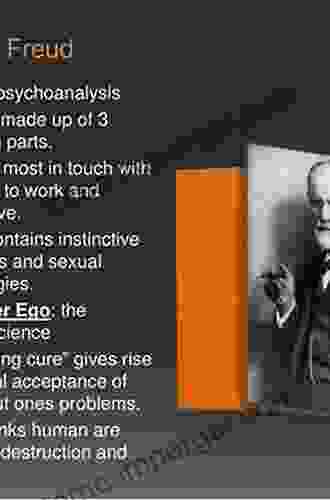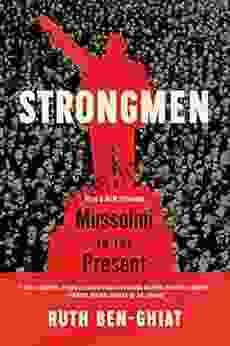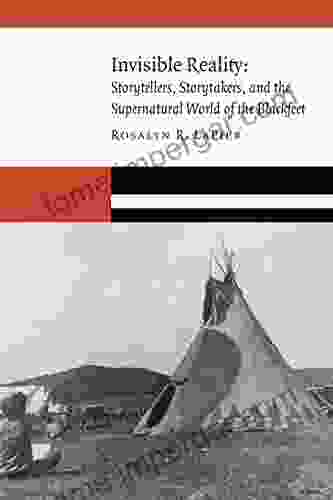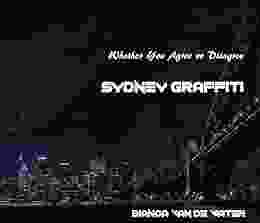Sigmund Freud and the Construction of Modernity: A Comprehensive Guide to the Father of Psychoanalysis

Sigmund Freud, the father of psychoanalysis, is one of the most influential thinkers of the modern era. His theories on the unconscious mind, sexuality, and the human psyche have had a profound impact on our understanding of ourselves and the world around us. Freud's work has been used to explain everything from mental illness to art and literature, and his ideas continue to be debated and discussed today.
In this comprehensive article, we will explore Freud's life, work, and legacy. We will examine his major theories, discuss their impact on the construction of modernity, and provide a guide to his most important writings.
Sigmund Freud was born on May 6, 1856, in Freiberg, Moravia (now Příbor, Czech Republic). He was the eldest of eight children born to Jewish parents. Freud's father was a wool merchant, and his mother was a devout woman who encouraged her son's intellectual pursuits.
5 out of 5
| Language | : | English |
| File size | : | 871 KB |
| Text-to-Speech | : | Enabled |
| Enhanced typesetting | : | Enabled |
| Word Wise | : | Enabled |
| Print length | : | 253 pages |
| Screen Reader | : | Supported |
Freud was a brilliant student, and he excelled in school. He studied medicine at the University of Vienna, and he graduated in 1881. After graduation, Freud worked as a neurologist at the Vienna General Hospital. It was during this time that he began to develop his theories on the unconscious mind.
In 1885, Freud married Martha Bernays. The couple had six children. In 1896, Freud published his seminal work, The Interpretation of Dreams. This book marked the beginning of psychoanalysis as a new field of study.
Freud continued to develop his theories throughout his life. He published a number of important works, including The Psychopathology of Everyday Life (1901),Three Essays on the Theory of Sexuality (1905),and Totem and Taboo (1913).
Freud died in London on September 23, 1939. He was 83 years old.
Freud's theories on the unconscious mind, sexuality, and the human psyche have had a profound impact on our understanding of ourselves and the world around us. Here is a brief overview of his major theories:
The unconscious mind. Freud believed that the unconscious mind is a reservoir of thoughts, feelings, and memories that are not accessible to conscious awareness. He argued that the unconscious mind plays a major role in our behavior, and that it can be accessed through dreams, free association, and other techniques.
Sexuality. Freud believed that sexuality is a fundamental human drive. He argued that sexual energy, or libido, is the driving force behind all human behavior. Freud's theories on sexuality were controversial at the time, and they continue to be debated today.
The human psyche. Freud believed that the human psyche is divided into three parts: the id, the ego, and the superego. The id is the impulsive, pleasure-seeking part of the psyche. The ego is the rational, reality-oriented part of the psyche. The superego is the moral, ethical part of the psyche. Freud argued that these three parts of the psyche are in constant conflict with each other, and that this conflict is the source of all human suffering.
Freud's theories have had a profound impact on the construction of modernity. His ideas have been used to explain everything from mental illness to art and literature. Freud's work has also been used to develop new therapies for mental illness, and to promote social and political change.
Here are some of the ways that Freud's theories have impacted modernity:
- Mental illness. Freud's theories have helped us to understand the causes of mental illness. He argued that mental illness is caused by conflicts between the id, ego, and superego. This understanding has led to the development of new therapies for mental illness, such as psychoanalysis and cognitive-behavioral therapy.
- Art and literature. Freud's theories have been used to explain the creative process. He argued that art and literature are expressions of the unconscious mind. This understanding has led to new ways of interpreting art and literature.
- Social and political change. Freud's theories have been used to promote social and political change. He argued that social and political problems are caused by conflicts between the id, ego, and superego. This understanding has led to new ways of thinking about social and political issues.
Freud was a prolific writer, and he published a large number of books and articles. Here is a guide to some of his most important works:
- The Interpretation of Dreams (1900). This is Freud's seminal work, and it is considered to be one of the most important books in the history of psychology. In this book, Freud argues that dreams are the key to understanding the unconscious mind.
- The Psychopathology of Everyday Life (1901). This book is a collection of essays in which Freud explores the everyday slips of the tongue, forgetting, and other everyday phenomena. Freud argues that these phenomena are the result of unconscious processes.
- Three Essays on the Theory of Sexuality (1905). In this book, Freud develops his theory of sexuality. He argues that sexuality is a fundamental human drive, and that it plays a major role in our behavior.
- Totem and Taboo (1913). This book is a study of the origins of religion and society. Freud argues that religion and society are based on the Oedipus complex, which is a conflict between a son and his father.
- The Ego and the Id (1923). In this book, Freud develops his theory of the id, ego, and superego. He argues that these three parts of the psyche are in constant conflict with each other, and that this conflict is the source of all human suffering.
Sigmund Freud was a brilliant thinker who revolutionized our understanding of ourselves and the world around us. His theories on the unconscious mind, sexuality, and the human psyche have had a profound impact on the construction of modernity. Freud's work continues to be debated and discussed today, and his ideas will continue to influence our thinking for years to come.
5 out of 5
| Language | : | English |
| File size | : | 871 KB |
| Text-to-Speech | : | Enabled |
| Enhanced typesetting | : | Enabled |
| Word Wise | : | Enabled |
| Print length | : | 253 pages |
| Screen Reader | : | Supported |
Do you want to contribute by writing guest posts on this blog?
Please contact us and send us a resume of previous articles that you have written.
 Book
Book Novel
Novel Page
Page Chapter
Chapter Text
Text Story
Story Genre
Genre Reader
Reader Library
Library Paperback
Paperback E-book
E-book Magazine
Magazine Newspaper
Newspaper Paragraph
Paragraph Sentence
Sentence Bookmark
Bookmark Shelf
Shelf Glossary
Glossary Bibliography
Bibliography Foreword
Foreword Preface
Preface Synopsis
Synopsis Annotation
Annotation Footnote
Footnote Manuscript
Manuscript Scroll
Scroll Codex
Codex Tome
Tome Bestseller
Bestseller Classics
Classics Library card
Library card Narrative
Narrative Biography
Biography Autobiography
Autobiography Memoir
Memoir Reference
Reference Encyclopedia
Encyclopedia Bernhard Wolf
Bernhard Wolf David S Rudolf
David S Rudolf Steve Edwards
Steve Edwards Behnay Books
Behnay Books Bill Bailey
Bill Bailey Howard Brenner
Howard Brenner Dr Joseph S Maresca
Dr Joseph S Maresca Reid Galbreath
Reid Galbreath Peter Lawson
Peter Lawson Ben Pansky
Ben Pansky Rebecca Frankel
Rebecca Frankel Ben Falcone
Ben Falcone Beth Elkassih
Beth Elkassih Basil Hall Chamberlain
Basil Hall Chamberlain Ben Shapiro
Ben Shapiro Rick Sammon
Rick Sammon Beth B Hogans
Beth B Hogans Laura Leist
Laura Leist Cathy Hamilton
Cathy Hamilton Billy Pegram
Billy Pegram
Light bulbAdvertise smarter! Our strategic ad space ensures maximum exposure. Reserve your spot today!

 Vladimir NabokovSustainable Irrigation Development In The White Volta Sub Basin: A Journey...
Vladimir NabokovSustainable Irrigation Development In The White Volta Sub Basin: A Journey... Barry BryantFollow ·14k
Barry BryantFollow ·14k Ethan GrayFollow ·18.9k
Ethan GrayFollow ·18.9k Jermaine PowellFollow ·17.1k
Jermaine PowellFollow ·17.1k Kelly BlairFollow ·7.7k
Kelly BlairFollow ·7.7k Darius CoxFollow ·12.9k
Darius CoxFollow ·12.9k Fabian MitchellFollow ·18.7k
Fabian MitchellFollow ·18.7k José SaramagoFollow ·3.9k
José SaramagoFollow ·3.9k Jayden CoxFollow ·8.8k
Jayden CoxFollow ·8.8k

 Edison Mitchell
Edison MitchellFrench Strategy and Operations in the Great War
An In-Depth Examination of Military Genius ...

 Harvey Hughes
Harvey HughesArts In Health: Designing And Researching Interventions
Delving into the...
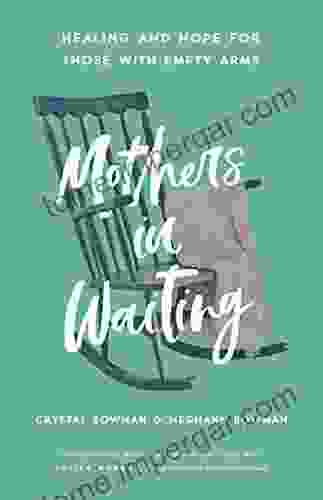
 Walt Whitman
Walt WhitmanHealing and Hope for Those with Empty Arms
A Comprehensive Guide for Grieving...

 DeShawn Powell
DeShawn PowellUniversity of Maine Ice Hockey: A Legacy of Frozen Glory
Nestled in the heart of Maine, a state...

 George Hayes
George HayesControl For Aluminum Production And Other Processing...
In today's competitive manufacturing...
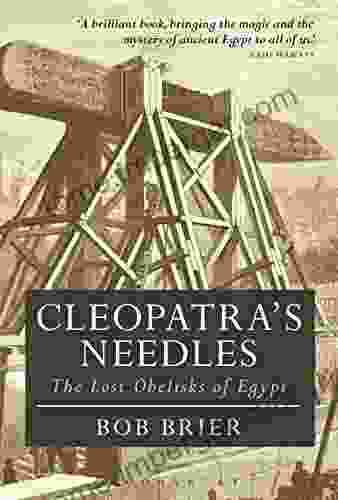
 Ben Hayes
Ben HayesThe Lost Obelisks Of Egypt: A Journey into the Depths of...
: The Enduring Allure of Egypt's Ancient...
5 out of 5
| Language | : | English |
| File size | : | 871 KB |
| Text-to-Speech | : | Enabled |
| Enhanced typesetting | : | Enabled |
| Word Wise | : | Enabled |
| Print length | : | 253 pages |
| Screen Reader | : | Supported |


